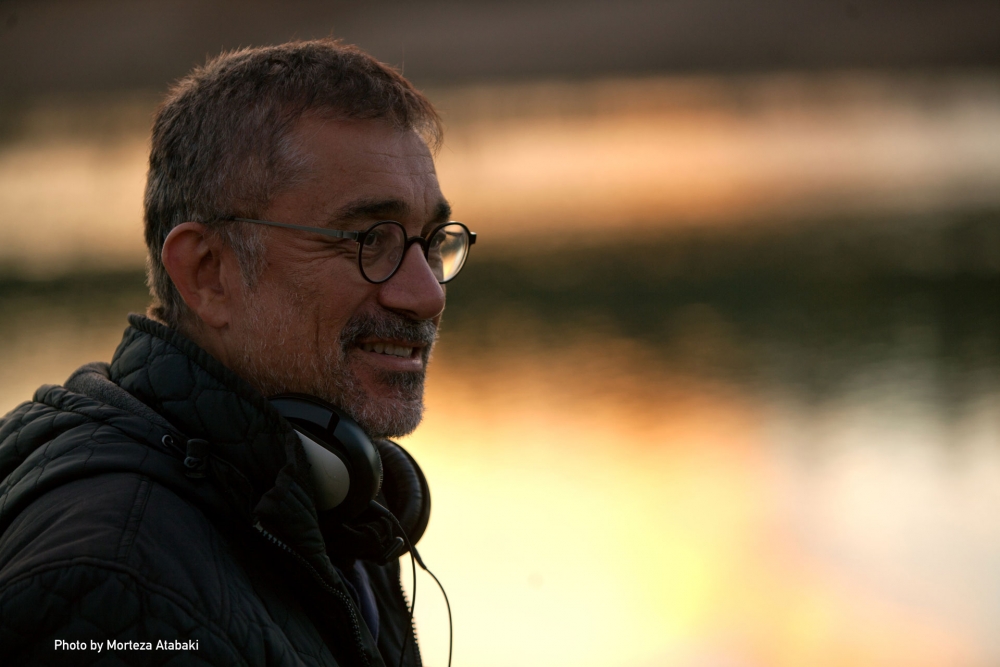Turkey’s Nuri Bilge Ceylan on Symbolism in His Films and Being ‘Suspicious All the Time’
By Ed Meza
LOS ANGELES (Variety.com) – Acclaimed Turkish director Nuri Bilge Ceylan discussed his career and the need for creative independence during a wide-ranging conversation Saturday at the Sarajevo Film Festival, where he is being honored with a retrospective.
In an often humorous talk, Ceylan, who accepted the Honorary Heart of Sarajevo Award for his contribution to cinema on the opening night of the festival, spoke about staying true to artistic vision while remaining open to change. He also addressed the perceived political symbolism of his work and described the use of such accepted cinematic techniques as storyboarding as creatively stifling.
Asked about changes to his style in his more recent films, such as 2014 Palme d’Or winner “Winter Sleep” and his latest work, “The Wild Pear Tree,” including the greater use of dialogue and shorter shots, Ceylan said: “That’s difficult to explain. These are all instinctive processes. I never plan it; I just do it – it’s a feeling. When it comes to defining it, it’s difficult for me.”
Using more dialogue in his newest film was a challenge. “It makes me afraid because it might not work,” Ceylan said. “This fear motivates me. But it doesn’t mean that I will always make films like this one.”
Ceylan took issue with the view that “The Wild Pear Tree,” about a young college graduate considering a career as a teacher in a rural village while also seeking to publish his first book – was more openly political than his past films. He said it was perhaps the subject matter and social situations of the setting that pushed him in that direction.
He set out to make a film about the human condition, about loneliness, not social conditions, which is something that does not motivate him, Ceylan said. He noted that people often examine his films for symbolic meaning, like the shot of a Turkish flag or the titles of books in a particular scene in his latest work, but that there was none intended. “When you make a film people look at every detail. But it’s not your film anymore after you finish it, so what can you do?”
While discussing the fact that “The Wild Pear Tree” was his first major international co-production, Ceylan said he had never faced any forms of censorship in Turkey.
“They don’t say anything,” he said. “To criticize a film is not an easy thing. People think that when you get money from the government, you are not free anymore. That’s not true. They give the money, but they don’t say even one word to you about how the film should be. They would have to discuss the film with you, and nobody knows anything about cinema. It doesn’t affect your independence in any way.”
Ceylan said he never employs storyboards while making his films. “It restricts my vision, storyboards. When I go to the set, I like to be free, free to change. When you go to the set, everything can change. You have to be open to that, and you have to trust yourself….I don’t think much about how I shoot something. I have some ideas beforehand, but when I go to the set, I start from zero….
“A director should never be sure of anything. He should be suspicious all the time; he should be afraid. In the shooting, what you like most is generally what you like least in the editing. In the editing, often the much better shot is the one you didn’t like in the shooting.”
Stressing that shooting is the most creative process in making a film, Ceylan said: “In the editing, what you shoot is what you have. You cannot change anything anymore, unlike a writer, who can always go back and change everything.”
The is showcasing eight of Ceylan’s films as part of its retrospective, including 1997’s “The Small Town”; 2002’s “Distant”; 2011’s “Once Upon a Time in Anatolia”; and “.” “The Wild Pear Tree” unspools in the separate In Focus sidebar.

